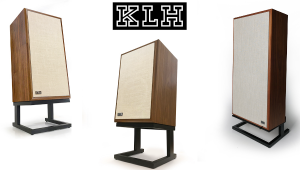The Super Sonic Adventures of Butch Vig and The Emperors of Wyoming

Initially released in late 2012 by Proper Records, The Emperors of Wyoming is a grainy, smoky spaghetti western come to life — pure Americana through and through, from the defiant twang of “I’m Your Man” to the harmonica-driven singalong jangle of “Cruel Love Ways.” Vig and the EOW gang decided to update the album for a 2014 Deluxe Edition released by Liaison Records (“a Super Duper Super Deluxe Edition,” Vig clarifies) by adding two covers — the Afghan Whigs’ “Rebirth of the Cool” and House of Love’s “I Don’t Know Why I Love You” — plus one original: “Drinking Man’s Town,” Davis’ ode to his hometown of Lacrosse, Wisconsin. Unlike the bulk of the record, “Town” was cut live. “It was one take, with one microphone on the guitar and the voice, and by far, it’s the rawest-sounding track on the record,” reports Vig. “We just thought it was the perfect little album closer.” It’s the right call, as “Town” also features brilliant backing vocals from Kim Henry. “If you listen close, Kim added a lot of great harmonies all throughout the album, which gives it an extra three-dimensionality,” Vig notes.
Here, Vig, 59, and I get down to discussing the Emperors’ recording techniques, his views of hi-res audio, and what to expect from Sonic Highways, the new Foo Fighters record that Vig just finished producing, which is slated to come out in November. Right from the hilt of the holster, Vig and The Emperors sure know how to draw big.
Mike Mettler: The Emperors are spread out all across the country, so tell me more about how all of the songs came together via fileshare.
Butch Vig: Well, all of the songs sort of start with Phil [Davis] sending an acoustic guitar and vocal track. He’d post it up on the Emperors FTP site, and then I would download it into my computer and put drums on it. Sometimes I might add some keyboards or a guitar or add some ambient noise bits, and then I’d load it back up. And then Frank Anderson would download it onto his computer. He’s the multi-instrumentalist in the band — he does guitars, keyboards, banjo, pedal steel, slide, and piano. His brother Pete [Anderson] would then download the session and put bass on it. Frank is who we call the keeper of the files. He’d download them all and get them into the rough arrangements. At a certain point, we realized we had a record coming together, and he went to Milwaukee and worked with a mixer named Alex Smolinski — who did wonders, because he really made the record sound cohesive. You can imagine what he had to deal with in terms of what was being recorded in different home studios over a 2-year period. There was a lot of variety in the tracks he had, and he was able to rein everything in and give it all a very cohesive feel.
Mettler: I wondered if he had to deal with a lot of level-matching on the back end, given all the different file sources.
Vig: It’s just all using your ears. [laughs] Some of the guitars may have been a little too loud, but Alex got them to work together. Sonically, all of the songs had a similar vibe.
Mettler: I call it your Gilded Palace of Sin because it’s got a modern-day Flying Burrito Brothers/Gram Parsons vibe to me — your own spaghetti western update, if you will.
Vig: Well, that’s a really good reference point, thank you. All of us really love country Americana. I grew up listening to Johnny Cash, George Jones, Neil Young, The Byrds, Tom Petty, Creedence Clearwater Revival, The Band — those are all reference points for The Emperors of Wyoming.
Mettler: This album is primed for putting the needle down on it. We talked about this last year when we discussed the Garbage Blu-ray you worked on [One Mile High...Live], but how do you feel about vinyl now?
Vig: I still love listening to it. We have a turntable at the studio where we primarily work on all the Garbage stuff. There’s a great vinyl store in our neighborhood in Silverlake called Rockaway Records, and occasionally, Duke [Erikson] and Steve [Marker] and I will go in there, and we’ll just wander around and buy records that we have no idea what they are in the hopes that we can take them back to the studio and find an obscure sample that we can maybe work into a Garbage record. It’s just fun to do that. All three of us grew up with vinyl, so it’s kind of a treat to go in there and pour through the record racks.
Mettler: Any example of a gem you guys recently found there?
Vig: I found a copy of the vinyl soundtrack for Dark Shadows, the TV show. It didn’t make it onto the last Garbage record [2012's Not Your Kind of People], but we started using it as the theme song in the studio. We had the record jacket opened up since it had a cool gatefold with some of the main characters shown. That was sitting around in the studio a lot while we were working on Not Your Kind of People. There was a lot of “visual attitude” coming from it. [laughs]
Mettler: Now that makes sense, because I think Barnabas [Collins, the 175-year-old vampire on Dark Shadows] was your kind of people.
Vig: Mmm-hmm, yeah! Right on!
Mettler: I think vinyl lends itself to listening more closely to the music at hand.
Vig: You’re more invested in the experience. You have to pick up the piece of vinyl and remove it from the sleeve and physically look at it, and you can see the artwork when you put the needle down on the record, you know what I mean? Whereas you listen to an MP3 or stream something from Spotify, and it’s just a blip out in the netherworld of the ether that’s being played in the airwaves. And then it’s gone.
Mettler: Whenever I put the needle down on a record, I call it “appointment listening.” I don’t do anything else.
Vig: Yeah, you’ve got about 20 minutes to dig into Side 1. And if you like it, you might go to Side 2.
Mettler: I usually do. We’re now dealing with hi-res downloads in 96kHz/24-bit, and some even in 192/24. Do you feel encouraged about that?
Vig: I do feel encouraged by it. Even something that came out on 44.1kHz/16-bit is going to sound better if you let it have a more open resolution versus a crushed down MP3 file. Even if it wasn’t originally 96k, it’s going to sound better when it’s remastered in hi res.
But it’s hard to know if the general public will embrace it. I think if that’s going to happen, the labels and the people who put it out have to make it readily available and cost-effective. People just want to hear the music. It’s frustrating to me, after spending all of this time in a studio working with great microphones, great mixing consoles, and great rooms, and laboring over this great music that you hear on these great speakers when you’re done. And then you get to the final mix and you realize, “99 percent of the people are never going to hear it like this.” They’re listening to cheap, compressed MP3 files on $5 earbuds. Most fans don’t care because they don’t know. If they had an option to hear really hi-res audio, they would — as long as they didn’t have to pay for it. Whether that gets embraced by the general masses remains to be seen.
Mettler: That is the sticking point. And now we have Pono, Neil Young’s service.
Vig: I applaud Neil for doing that. And there will be an audience for it, because there always will be people who want to hear high-quality audio. But I just don’t know if it’s going to filter over into the mainstream.
Mettler: I did get a chance to talk with Neil, and he’s so passionate about it. But the initial buy-in for albums will be between $15 and $25. You and I are going to do it, of course, but will Joe and Jane MP3 Listener be willing to do it?
Vig: Yeah, I think there will be an audience for that kind of music. I hope that there’s a big enough audience to sustain it, as you need enough subscribers or believers who want that kind of music. And I think there will be.
Mettler: You have a number of albums under your belt that deserve hi-res treatment.
Vig: We’ve always slaved over the Garbage records, and I want them to be heard in as high fidelity as possible, because there’s a lot of detail in them, and sometimes you don’t hear that when it gets compressed into MP3.
Mettler: The Emperors record is one for hi res too, because you want to hear all of the resolution and all of the detail. Is there one track from the record you’d zero in on as the one you’d want people to hear in hi res?
Vig: Hmm. I think a song people like sonically is “Never Got Over You.” It has the sitars and the E-bow, and the production is a little more left-field than some of the other tracks on there. I love the way that track sounds.
Mettler: Some of the big-label stuff you’ve produced for bands like Smashing Pumpkins and Nirvana would be great in hi-res.
Vig: Yeah, like Siamese Dream [released July 27, 1993]. That’s another one that was such a big, detailed sonic album that I produced, and it’s meant to be heard in its full glory. People would really appreciate it even more when they hear it in hi res.
Mettler: What tracks from Siamese Dream would sound the best in hi-res?
Vig: The first track, “Cherub Rock,” as it starts, or a song like “Hummer,” which starts with that crazy, distorted drum move and that bass line, and then it gets really big at the end before it goes into this glowy, jazzy outro. The dynamics are really powerful, and that would lend itself to a hi-res audio experience.
Mettler: You just finished producing the Foo Fighters’ next album, Sonic Highways. Anything you can say about how it sounds or feels?
Vig: I think the songs sound pretty amazing. They’re very epic-sounding. We took a different approach in terms of how we put the album together. It kept everyone on their toes. And like I said, there are some pretty epic songs on the record. I can’t wait for people to hear it.
An extended version of this interview appears on Mike Mettler’s own site, soundbard.com.
- Log in or register to post comments






























































